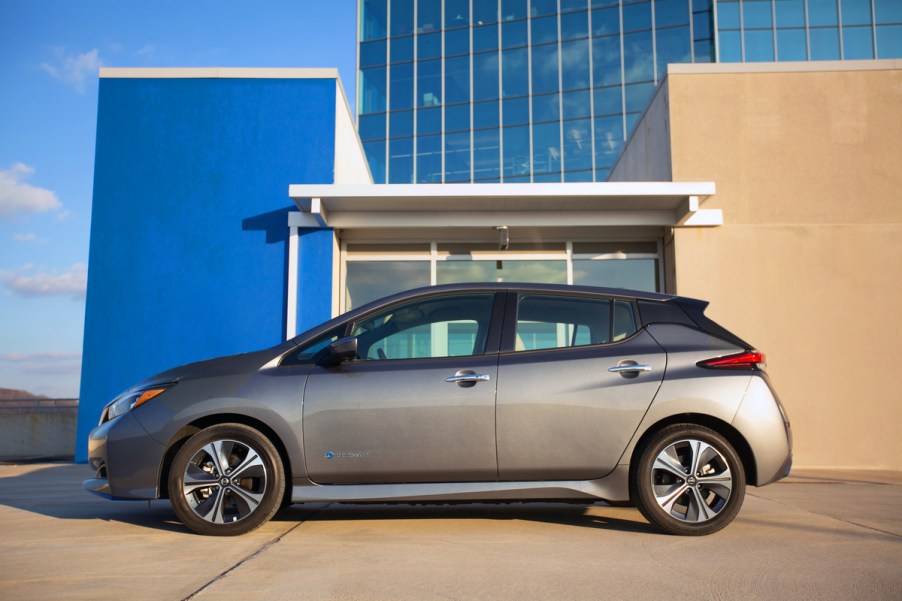
Why Is the Nissan Leaf Eligible for the EV Tax Credit but the Chevy Bolt Isn’t?
In 2022, almost every car brand is scrambling to electrify its lineup. But the Nissan Leaf and Chevy Bolt are veterans on the electric vehicle scene. Nissan introduced the Leaf in 2010, and Chevrolet brought the Bolt to market in 2015, making these carmakers pioneers in the EV field. So, why is only one of these models eligible for the federal EV tax credit?
What is the federal EV tax credit?
The U.S. Department of Energy offers a generous EV tax credit to owners of electric vehicles. All plug-in hybrid or all-electric vehicles purchased after 2010 could be eligible for an EV tax credit of up to $7,500. Owners can request the credit when filing their federal income tax returns. The capacity of the EV’s battery determines the dollar amount.
But first, the manufacturer must meet the following requirements for the credit:
- The EV must be made by the manufacturer and not converted.
- The vehicle is considered a motor vehicle in the Clean Air Act.
- The EV must not weigh more than 14,000 pounds.
- And the EV also must be powered by an electric motor, getting its electricity from a battery. The battery must be capable of being recharged externally and have a capacity of at least 4 kilowatt-hours.
Currently, the tax credit is nonrefundable. That means you don’t get a check for the amount from the government. It just reduces the amount of taxes you owe. However, there are talks about making the EV tax credit refundable, which means EV buyers would get at least $4,000 extra directly in their pockets.
The Nissan Leaf is still eligible

In 2022, the Nissan Leaf still qualifies for the tax credit, but the Chevy Bolt will not. The reason? General Motors, Chevrolet’s parent company, has sold too many Bolt EVs, so they are no longer eligible. The credit specifies that a car manufacturer will be phased out of the program once that company has sold over 200,000 EVs since January 1, 2010. GM has surpassed that goal, so the credit no longer applies.
Although GM vehicles no longer qualify, the EV tax credit can be a big incentive for buying an electric vehicle. Legislation on the table might change things for future buyers of GM’s electric vehicles.
The Chevy Bolt might be eligible for a new EV tax credit
Soon, the Chevy Bolt EV and the Bolt EUV crossover could be eligible for a new tax credit. President Joe Biden’s Build Back Better bill has a provision that applies to union-made electric vehicles. If the bill passes, it will include an even larger credit than currently available.
Road Show reports that the base credit remains the same, at $4,000 for purchasing an EV. But the new proposal adds $3,500 if the battery pack has 40 kilowatt-hours or more capacity. Then $4,500 is added if the vehicle is made in the United States with union workers. Add another $500 if the battery is made stateside. That brings the total tax credit to $12,500 for purchases of EVs such as the Chevy Bolt.
Notably, the provision in the Build Back Better bill would leave out the Ford Mustang Mach-E and all Tesla vehicles because they are assembled in Mexico. As of this writing, the new bill is stalled in Congress, and it is unknown which parts, if any, will pass.


